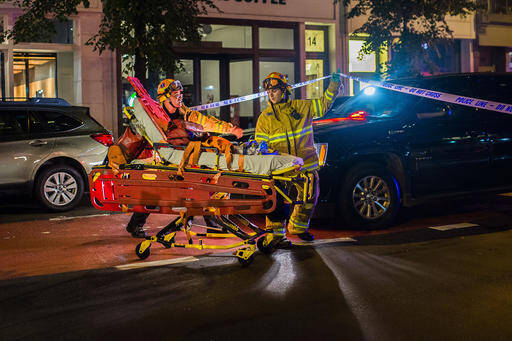At 7:55 a.m. this morning, my phone wakes me to a nightmare. The blaring emergency alert jolts me from my sleep and tells me a 28-year-old suspect connected to Saturday night’s explosion in New York City that left 29 people injured is on the loose.
I flash back to a different nightmare, three years prior. It is a Friday in April of 2013, and I am sheltered in my dorm room. Boston is on lockdown. An entire city is looking for two men who attacked the Boston Marathon.
Five days prior, I ran the Boston Marathon. A few hundred feet separated me from the finish line when I heard the deafening explosions. Black smoke shrouded the street. Pandamonium surrounded me. Miraculously, a stranger helped get me back to Boston College safely.
The feeling returns with each tragedy—Paris, Orlando, Istanbul. At times like these, it can feel like the world is falling apart around us. It feels as though my inner chaos, brimming with turmoil and fear, will overcome me.
But when I think about the Boston Marathon and its aftermath, more than the terror, I remember a man who paid a driver $50 to shepherd me from harm and perhaps even save my life. I recall a number of Bostonians who welcomed their neighbors and strangers into the safety of their homes. I contemplate “Boston Strong,” the story of a city that came together to embrace the most marginalized among us on that day.
Events like this past Saturday's can be catalysts for doomsday thinking and feeling, but what is really at stake in these seemingly random and recurring nightmares is our peace. Peace of mind and, more important, peace in this world, in the midst of complex and unresolved conflicts.
As people of faith, is it possible to stand tall in the face of these calamities? Can we recognize where our deepest despair touches our innate goodness? Can we resist the temptation to lose confidence in one another but instead fully rely on our shared humanity?
Our peace must lie somewhere beyond fears and doubts—in faith, in the choice of what we pay attention to. My faith, at its best, allows me to shift my vision from despair and to see instead the innate goodness of humanity. Ultimately, faith is what keeps peace alive in a world that can seem constantly on the brink of self-destruction.
Jesus says: “I have told you these things, so that in me you may have peace. In the world you will have trouble. But take heart! I have overcome the world” (Jn 16:33).
As a person of faith, and as a New Yorker, I dream of peace amid these nightmares.








